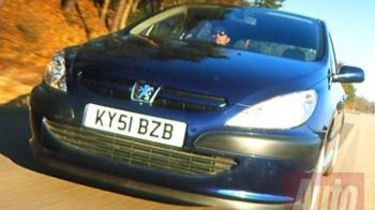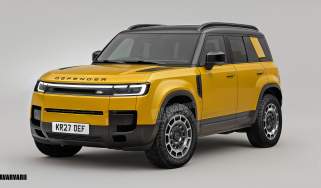Peugeot 307 1.4 HDi
In the New Cars pages of this magazine between October and the end of 2000, we featured six diesel-powered cars. For the same period in 2001, it was 18. We merely report on everything that's new, so how come there's been this sudden influx of oil-burners? It's all down to you. The increased price of fuel and punitive new company car taxation rules have meant buyers want something more wallet-friendly. And car makers are waiting to welcome them with hi-tech newcomers which average 60-plus mpg and

In the New Cars pages of this magazine between October and the end of 2000, we featured six diesel-powered cars. For the same period in 2001, it was 18. We merely report on everything that's new, so how come there's been this sudden influx of oil-burners? It's all down to you. The increased price of fuel and punitive new company car taxation rules have meant buyers want something more wallet-friendly. And car makers are waiting to welcome them with hi-tech newcomers which average 60-plus mpg and still reach 100mph.
Yet while the top end of the diesel market has been flooded with new products to tempt drivers out of their petrol-engined cars, there has been little on offer for those who want a sensible family runaround rather than 150bhp. Fortunately, the arrival of the engine we've tested here will change all that. This all-new four-cylinder 1.4-litre turbo unit is not only used in the Peugeot range, it will also be shared with Citroen and Ford - check it out in the Fiesta sampled on page 6 of this issue.
Because it's not the fastest or most economical engine on the market, it has hardly grabbed the headlines since its launch, but it is aimed at what is potentially the biggest growth market for diesels. The new 70bhp unit returns performance figures that are not too far behind those of the same-sized petrol engine, but the HDi will squeeze an extra 20.8 miles out of every gallon by averaging 62.8mpg. Impressive stuff. And on the road the 307 powerplant doesn't feel too slow, either. Of course, performance figures don't tell the complete story, but in the sort of driving conditions which the average motorist encounters daily, the 307 rarely feels out of its depth.
Used - available now

2019 Ford
Fiesta ST
65,000 milesManualPetrol1.5L
Cash £11,990
2022 Volvo
XC40
84,969 milesAutomaticPetrol1.5L
Cash £15,697
2023 Citroen
C5 Aircross
36,737 milesManualPetrol1.2L
Cash £14,497
2020 Volkswagen
Golf SV
32,254 milesManualPetrol1.5L
Cash £11,997Pull away in too high a gear and it will struggle, but keep the rev counter pointing above 2,000rpm and below 4,000 and it will carry you along happily without the need to red line it in every gear as you would have to in a small-engined petrol model. Long gearing means that it's surprisingly refined on the motorway, too, and you rarely have to downchange on long inclines, thanks to a petrol-bashing 153Nm of torque. It lacks the impressive mid-range punch of a Volkswagen diesel or the refinement of Renault's new 1.5-litre unit, but it is a good compromise.
And we'd confidently bet that most drivers would never guess it's a diesel from inside, either. Even when cold, there are no vibrations through the controls, and the clatter which does reach the cabin is easily drowned out by putting the radio on at low volume.
And the rest of the 307 package makes sense, too, being competent in most areas. The ride and handling are both impressive, helped by the new engine, which is 50kg lighter than the 1.9-litre diesel it replaces. The interior is much better put together than in previous Peugeots, and there is plenty of room for five adults. With impressive vehicles such as the 307 HDi available, the days of petrol dominance are clearly coming to an end. We'll keep counting from this October.
Engines such as this will see more private buyers defect from petrol power. The 1.4-litre HDi is no record breaker, but compared to a small petrol version it's more relaxing to drive and will return an impressive 20 miles extra from each gallon. There's hardly any sacrifice in refinement or handling, either.
At a glance
* New 1.4 turbodiesel shared by Peugeot, Citroen and Ford
* Develops 70bhp, returns 62.8mpg combined average. 0-60mph in 16.5 seconds
* On sale now, priced at


